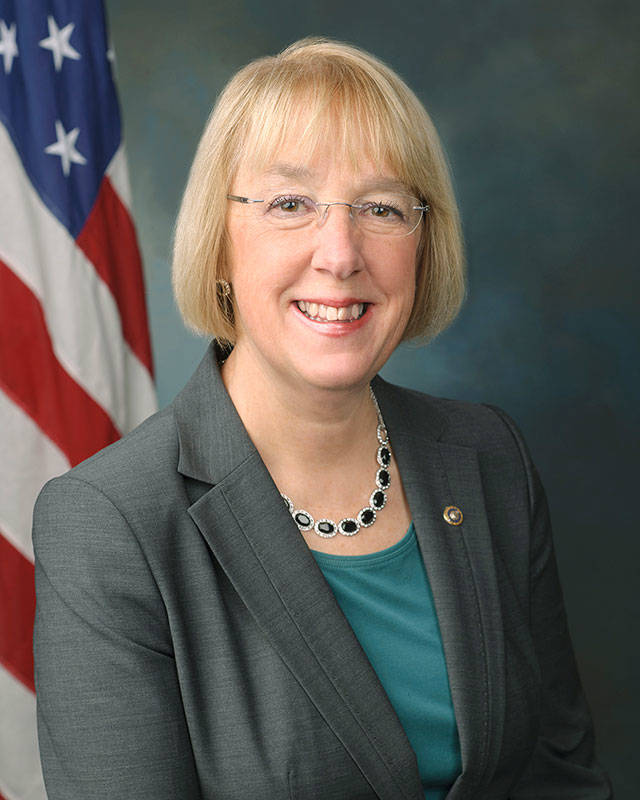Days after President Donald Trump released a budget that would slash support for working families, U.S. Sens. Patty Murray, D-Wash., the top Democrat on the Senate labor committee, and 30 of her Senate colleagues, including Sen. Maria Cantwell, D-Wash., introduced legislation on Thursday to raise the federal minimum wage to $15 an hour by 2024.
Reps. Bobby Scott, D-Va., and Keith Ellison, D-Minn., introduced a companion bill with 152 cosponsors in the House.
The current federal minimum wage is $7.25 per hour. States can set minimum wages at a higher rate. Washington’s rate is $11 per hour.
If approved, the federal minimum wage would be increased from $7.25 to $9.25 on enactment. Wages would then go up to $10.10 (2018); $11 (2019); $12 (2020); $13 (2012); $13.50 (2013); $14.20 (2023); and $15.00 (2024).
“Our country is strongest when workers and families are strongest, and raising the minimum wage to $15 an hour nationally is a critical part of reaching that goal,” Murray said in a media release. “Washington state has been a leader in raising the minimum wage because we know the value a living wage adds to our economy and in our communities.
“I’m especially proud that the Raise the Wage Act would mean millions of women – particularly women of color who are disproportionately impacted by pay discrimination – earn more of what they need to support their families. If President Trump truly cared about the workers he promised to put first on the campaign trail he would join us to make sure workers get a fair wage, and that’s exactly what we are going to push this administration and Republicans to do.”
Cantwell released the following statement:
“Washington state has a history of fighting for workers’ rights,” she said. “Our state has the nation’s highest minimum wage at $11 and is one of the fastest growing economies in the country. We are proof that you can provide Americans a living wage while creating jobs and growing the economy. It’s time for Congress to put workers before corporations and raise the national minimum wage. Today’s bill does just that.”
The Raise the Wage Act would raise the minimum wage to $15 per hour by 2024 and would be indexed to median wage growth thereafter. This raise would increase the minimum wage higher than its 1968 peak. The federal minimum wage has not been raised since 2009.
While labor productivity has more than doubled since the late 1960s, pay for workers generally and for low-wage workers in particular has either stagnated or fallen since the 1970s. At the same time, income for those at the top has skyrocketed. The richest one percent have seen their income grow by 15 percent since 2009 and by more than 130 percent since the late 1960s.
The legislation would give more than 41 million low-wage workers a raise, increasing the wages of almost 30 percent of the U.S. workforce. A $15 minimum wage by 2024 would generate $144 billion in higher wages for workers, benefiting their local economies.
The bill will also gradually eliminate the loophole that allows tipped workers and workers with disabilities to be paid substantially less than the federal minimum wage, bringing it to parity with the regular minimum wage. Moreover, it would also phase out the youth minimum wage, which allows employers to pay workers under 20 years old a lower wage for the first 90 calendar days of work.


